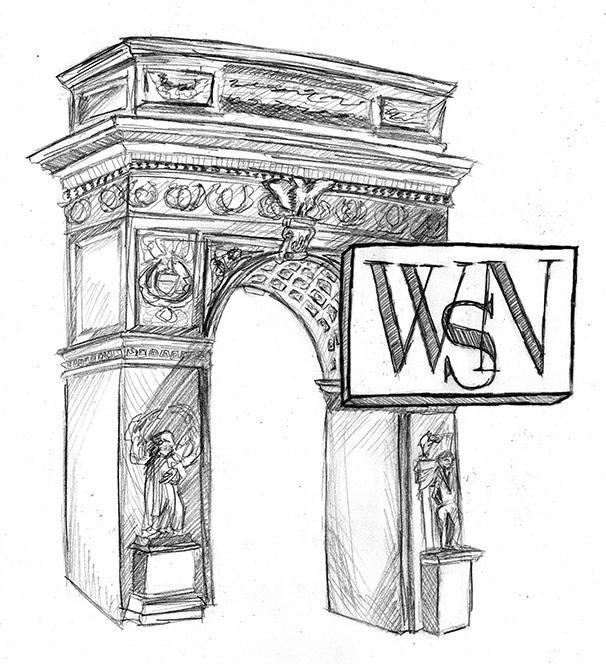Hamilton’s Response to NYUAD Is a Step Closer to Adequate
February 14, 2018
NYU President Andrew Hamilton recently sent out an email to NYU faculty members, finally proposing policy and admitting fault for not adequately dealing with the denial of NYU Journalism Professor Mohamad Bazzi and Associate Professor of Middle Eastern Studies Arang Keshavarzian from entry into the United Arab Emirates, where they both intended to teach at NYU’s Abu Dhabi campus. Hamilton has been tactful with his most recent statement in addressing a complicated situation; however, he has yet to openly address the underlying issues of religious discrimination underpinning their visa denials. Hamilton’s statement is inadequate without established protocols to shield NYU faculty from religious discrimination.
Bazzi planned to teach at NYUAD in the 2018 fall semester, but his visa was denied. Bazzi, a Shiite Muslim, had his security clearance rejected and claimed that the visa denial was largely religiously motivated — an act of discrimination carried out by the UAE, a Sunni majority country. Many other students and faculty have had similar experiences. Keshavarzian — who was born in Iran, a predominantly Shia country — also had his security clearance denied. A few weeks later, the Arthur L. Carter Journalism Institute decided to boycott NYUAD.
In October 2017, Hamilton released an open letter to the Department of Middle Eastern and Islamic Studies acknowledging the visa denials of professors Bazzi and Keshavarzian as problematic but did not address the substance of either professor’s claims. Hamilton said in the letter that the university may consider taking a public stance against any policies opposed to the university’s philosophy of global mobility. This statement was a response to a critique by the MEIS department, which claimed that while Hamilton showed a clear opposition to President Donald Trump’s travel ban, Hamilton did not show the same intensity of objection to the UAE government’s denial of the NYU professors. Hamilton’s main concern was to preserve the global mission of higher education, not to have an official public stance against the UAE government.
Last month, Hamilton released another letter to the Faculty Committee on NYU’s Global Network in which he reiterated much of his previous letter to the MEIS department. In response to the department’s letter, Hamilton stated, “NYU strongly believes academic freedom and free movement of people and ideas … are key to our goals.” He also said about Bazzi and Keshavarzian, “It is unimaginable to me that either would pose a security threat based upon their writing and scholarship.” The letter from January improved upon Hamilton’s original remarks on the issue by including possible steps toward improving NYU’s current protocols that would address “visa application procedures and appeal processes, communications between schools and visa applicants, and the university’s annual global mobility report.” Though somewhat improved, this letter lacks in addressing the issues of religious discrimination and academic freedom because it merely reasserts NYU’s commitment to free global education. In fact, according to reporting done by WSN, Keshavarzian has not had his visa denial directly addressed by the administration.
Luckily, in his most recent email to NYU faculty four months later, Hamilton improved his previous actions, acknowledging that he mishandled the situation and outlining specific improvements in protocol with broad changes to processes concerning visas and mobility. This letter was thorough in addressing the problem and posing a solution, but he failed to truly denounce religious discrimination on the part of the UAE. Hamilton took a necessary step in addressing the issues between the New York campus and NYUAD. However, his statement was insufficient. NYU must explicitly acknowledge the alleged religious discrimination NYU faculty and students have experienced.
Email the WSN Editorial Board at [email protected].

























































































































































